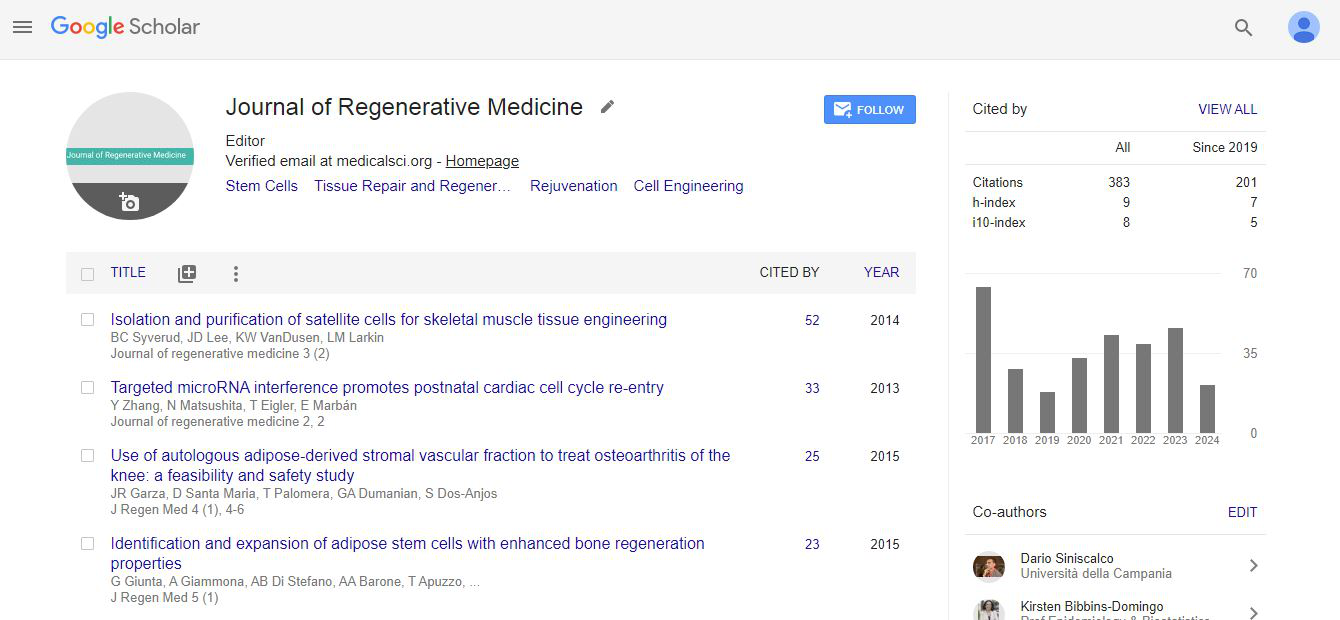The intracellular Na+ /H+ exchanger NHE7 effects a novel Na+ but not K+-coupled proton-loading mechanism in endocytosis
Laurent Counillon, Nina Milosavljevic, Michaël Monet, Isabelle Léna, Frédéric Brau, Sandra Lacas-Gervais, Sylvain Feliciangeli andMallorie Poët
Université Nice-Sophia Antipolis LP2M, CNRS-UMR 7370 Facultéde Médecine, 28 Avenue de Valombrose, Nice, France IPMC, Université Nice Sophia Antipolis, CNRS-UMR 7275 660 Route des Lucioles Sophia Antipolis 06560 Valbonne, France 3 CCMA
: J Regen Med
Abstract
Eukaryotic single-membrane organelles possess a finely tuned acidic luminal pH, which is crucial for the compartmentalization of cellular events and for the maturation, trafficking, recycling and degradation of proteins. This acidification is described to be produced by vacuolar H+ -ATPases, coupled to vesicular ClC chloride transporters. Three highly conserved Na+/H+ exchangers NHE6, 7, 9 are also expressed in these compartments. Their mutations are linked to autism-spectrum disorders and neurodegeneration. NHE6, 7 and 9 are believed to exchange cytosolic K+ for H+ and alkalinize vesicles. We used somatic cell genetic techniques based on proton killing to select cell lines that express wild-type-intracellular NHEs at the plasma membrane. This enabled the measurement of the exchangers transport parameters using intracellular pH and ion flux measurements. Noticeably, we showed that NHE7 transports Li+, Na+ but not K+, is non-reversible in physiological conditions and is constitutively activated by cytosolic H+. Therefore it cannot work as a proton leak, but rather as a novel proton-loading transporter. Using video fluorescence and spinning disk confocal microscopy we next observed that inintracellular vesicles NHE7 mediates an acidification that is additive to that of V-ATPases. This acidification results in an accelerated endocytosis rate. Taken together our study reveals an unexpected proton-loading function for a vesicular Na+/H+ exchanger and provides clues for understanding its role in intracellular trafficking as well as in NHEs linked-neurological disorders.
Biography
Laurent Counillon has completed his PhD at the age of 26 years from the University of Nice-Sophia Antipolis and his postdoctoral studies at Yale University (Center for Structural Biology). He is full Professor of Biochemistry and Molecular Biology at the University of Nice-Sophia Antipolis since 2003 and group leader in the CNRS UMR7370 Research Unit located at the Faculty of Medicine of Nice. Email: Laurent.COUNILLON@unice.fr
 Spanish
Spanish  Chinese
Chinese  Russian
Russian  German
German  French
French  Japanese
Japanese  Portuguese
Portuguese  Hindi
Hindi 